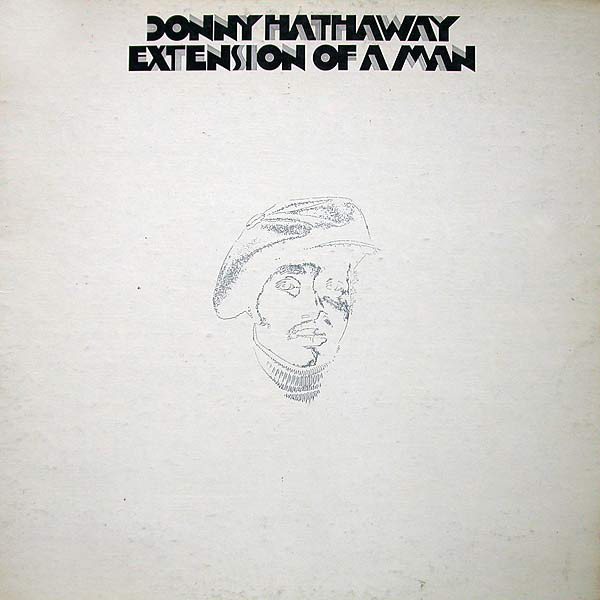by TBR contributor Alex Bunardzic
I’m a huge Donny Hathaway fan. His final solo release, Extension of Man, is an amazing album that came out on the ATCO label in 1973. It features a staggering number of musicians on a wide variety of instruments that included, among others, jazz artists Stanley Clarke and Hubert Laws on the bass and flute respectively.
Donny Hathaway LPs are, in my experience, hard to come by. So I was very happy when I found a reissue of “Extension of a Man”, issued by Rhino Vinyl in 2014 at my local record store. I bought the record and took it home for a listen and when I did, I felt somewhat underwhelmed. For whatever reason this album did not grab me emotionally like the other Hathaway LPs I have in my collection. It sounded, okay, but I wasn’t drawn into the music while listening to it. I put it on the shelf and forgot about it.
Then a few days ago I stumbled upon an original pressing of “Extension of a Man”. I purchased it on the spot and rushed home, washed it carefully with my RCM, vacuumed it, and sat down for a listen. BAM!! It hit me right in the heart! Donny Hathaway magically appeared in my listening room. It was him, his music, his amazing singing and playing. It all felt so alive, so present!
Recalling my earlier experience with the album, I started asking myself why I could not engage with the record before? Was there a problem with the 2014 Rhino reissue? I started doubting my motives. I thought “maybe I’m turning into a record snob? An LP collecting curmudgeon? Maybe I had become someone who blindly insists that only the original pressings are worthy of their time.”
I was all but convinced at this point that the differences between the original pressing and the reissue were mostly in my head. I mean, Rhino is a reputable publisher. Could they have botched this reissue? I was feeling pretty sure that if I played both LPs side by side, the differences in the sound quality would be tiny, if noticeable at all.
So I put on the 2014 Rhino pressing, playing my favourite track — “I Know It’s You”. It’s a fabulous tune! It’s grandiose, epic, and it never fails to bring a tear to my eyes. The Rhino pressing sounded… nice, soft, warm, mellow. But there were no waterworks.
Then I put on the original pressing, same track. My God! I was blown away. The presence, the magic, it all started flooding into my room. The waterworks were unstoppable! How’s this possible? Why is it that the original pressing is so crisp, so full of oomph and light and energy, while the reissue sounds so muffled, dull and lifeless?
I’ve now decided to only buy original or near original pressings when buying music from the 40s, 50s, 60s, 70s and 80s. After experiencing several fiascos with reissues that include The Beatles anniversary reissues, this Donny Hathaway album, and several Miles Davis reissues including a reissue of Agharta on Four Men With Beards I recently wrote about, I just don’t think it’s worthwhile throwing more money away on expensive, lavishly packaged, poorly mastered/pressed reissues.
The “180 gram Audiophile” hype stickers on these reissues now look to me like bona fide marketing snake oil. I have a number of these ‘audiophile’ 180 gram LPs in my collection that suffer from substandard sonics. I’m not saying that every modern reissue is necessarily substandard, just that thus far I’ve never managed to stumble upon one that could improve on a good original pressing.
Which brings up an important question: why does it seem that it’s so difficult to recreate the amazing sonics one hears on the original LPs? Is it due to the conversion from analog tapes to digital, and then converting it back from digital to analog during the mastering/pressing? Or is it due to the original analog tapes deteriorating over time? Or is it due to the hearing loss that many ageing sound/mastering engineers have suffered from? Or is it simply the case of modern listening sensibilities being fundamentally different from the sensibilities from that of eras long gone?
I don’t have an answer to these questions. My host here at TBR and I have had several exchanges on the topic which are discussed in detail in a previous post. Hopefully someone with more knowledge on the subject will weigh in and further enlighten us with their comments.
As an audiophile record collector, this topic is very important to me. I hope we can learn how to roll into the 21st century producing recorded music without smothering it into the brick-walled, compressed mess that it so often is on modern records.
